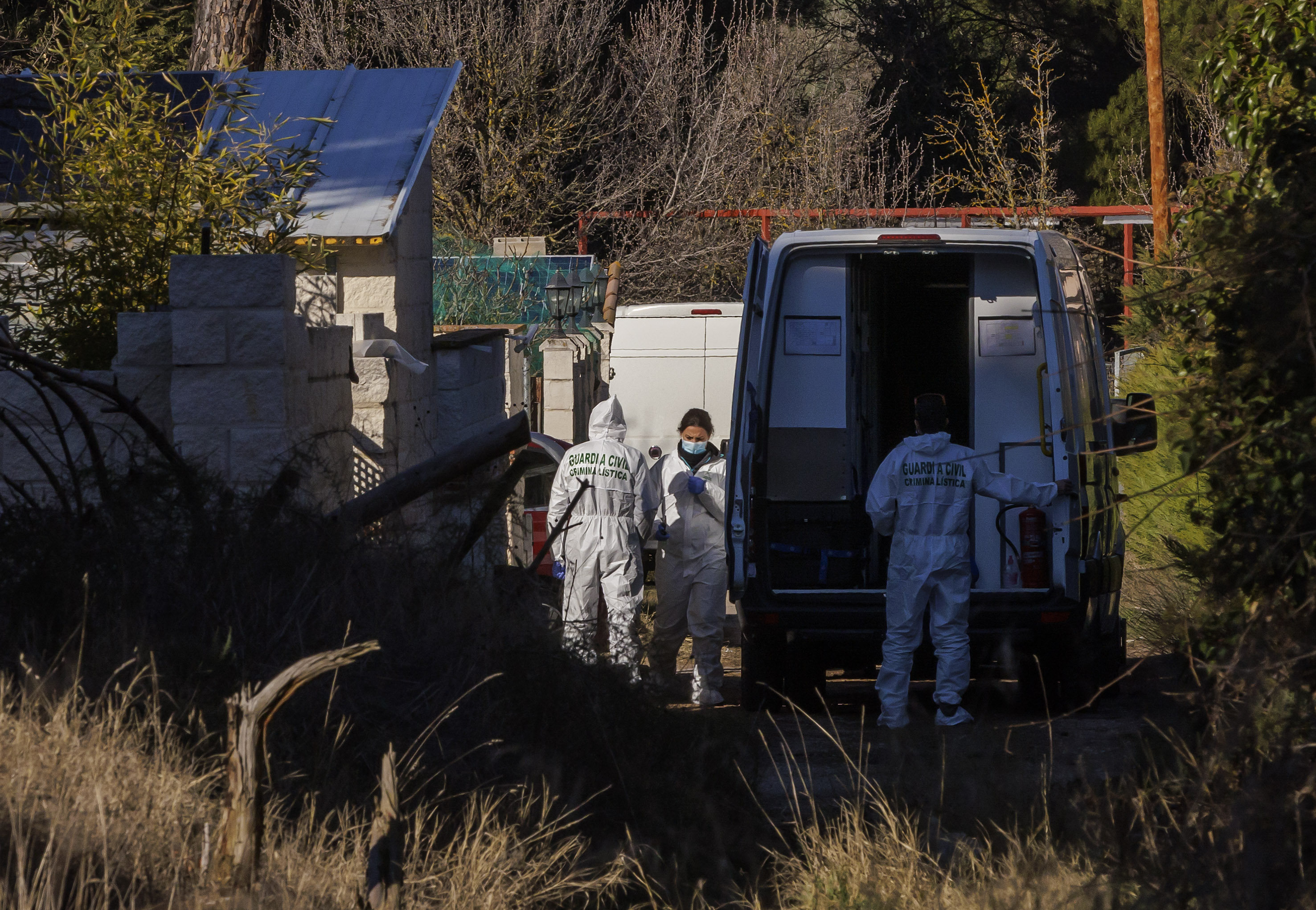The usually quiet Traspinedo (Valladolid, 1,100 inhabitants) has become a town that appears in the news. I wish it weren’t like that, lament the neighbors in the streets, where posters showing the disappeared Esther López de la Rosa, 35, have abounded for 12 days. The last ones who saw her were some friends and there is no trace of her or her telephone signal. The Civil Guard has arrested a man for his alleged relationship with events that have devastated the spirits of a population that knows the woman and her family well.
A group of reporters waits next to a residential area near the town, next to the N-122 national highway. The single-family homes are nestled among towering pine trees watered by the nearby Douro River. A perfect place to be calm, as defined by a resident, if it were not for the fact that the Civil Guard has been analyzing the home of Ramón, nicknamed the handyman, as the main suspect in the “forced” disappearance of López. The deployment has been expanding after some initial investigations focused on the home of this man, about 40 years old. There are members of the Central Operative Unit of the Civil Guard, who have resorted to divers to search the channel for possible clues about the Valladolid. The drones comb the huge pine forests in the vicinity while the dogs Dylan and Bill accompany the policemen who, together with the arrested person, analyze every inch of this chalet, whose windows have been scrupulously closed, in search of clues. The neighbors, by order of the authorities, do not speak.
One of the agents who guards the house confirms that they reached this person after what seemed like a diversionary maneuver: according to the person who informed the guards, Ramón told him that he had spoken with López days after his disappearance. Her phone has been disconnected since that day, hence the suspicions of the investigators. The man, according to the neighbors, did not interact much with his surroundings but he did have unpleasant episodes in the file. The best-known story about his outbursts occurred a year ago at the nearby La Maña bar, where he attacked a man with a knife, injuring his arm before being subdued.
The investigation must elucidate who has caused the disappearance of López, who spent the night of January 12 with some friends watching a soccer game and who, after a small argument with them according to sources familiar with the case, asked to be left next to the road that leads to the urbanization where the detainee resides. A car is advancing there, to which the commotion of the press and police vehicles makes it hesitate when it heads towards the road that leads to the analyzed area. The driver turns and asks a civil guard about the state of Ramón’s dog: she is his ex-partner and she goes, worried about the dog, to find out if they have given him feed. The woman, with a Brazilian accent, refuses to make a statement before turning around, but she does assure that she has been “surprised” at the accusations made: “He is the father of my children, he is not a bad person.”
Another opinion is felt in Traspinedo, where historically the labels and posters simply highlighted the suckling lamb that is eaten in local restaurants. An embarrassed butcher declines to speak because he knows Esther López and his friends have asked him not to make many statements to try to keep calm. Elena Aguado, who walks through the streets, expresses her pain at the “horrible” of what happened and how it can affect the parents of a young man, well known in the town. He comes from there all his life and his mother was born in Cogeces del Monte. “He grew up here, we are all very upset, the woman regrets. The popular raids through the pine forests have not found any clue that leads to their neighbor. The water of the Duero, which crosses that area, is at about six degrees.
Another resident of Traspinedo, who prefers not to give her name, assures that the main complication of the search is found more than in the pine forests, extensive but clear, in the river and its banks, where weeds grow out of control. “She has been from here all her life, she lived with her family and did a lot of activity in the streets,” says the woman. His face twists when he talks about Ramón, of medium height and about 40 years old, whom he considers “imposing, not because of his corpulence or size but because of his attitude, he was difficult to deal with.” Two young people walking through Traspinedo express their disgust at the misfortune that has overtaken the place. “Few people are more sympathetic and smiling than her,” they affirm, without even imagining the pain that can consume that family if the town is already sorry. “She is heaven, I hope something is known as soon as possible,” they conclude, before heading to the town square, adorned with a purple painted sign that says “Stop abuse” against sexist violence. Nearby, another message hangs on a wall: “Causing pain and suffering doesn’t fix anything.”
What affects the most is what happens closest. To not miss anything, subscribe.
subscribe
elpais.com
Eddie is an Australian news reporter with over 9 years in the industry and has published on Forbes and tech crunch.
